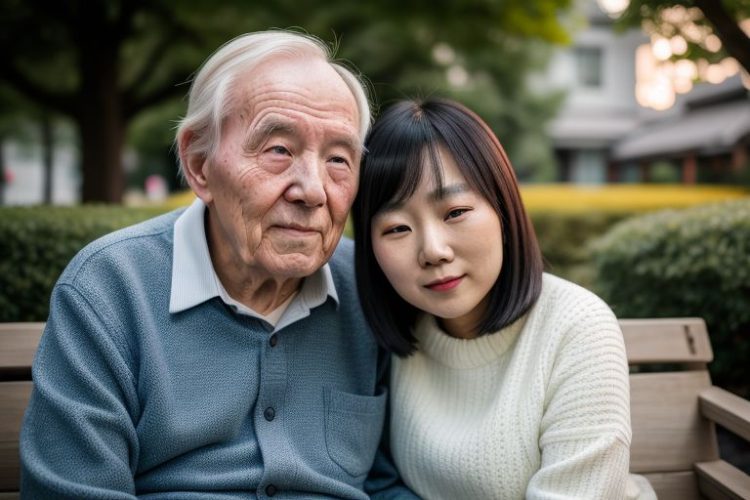Introduction
Asia is a continent ripe with diverse cultures and traditions that can be at one’s fingertips as an expatriate living there. For many, the ability to form new relationships and discover new romance is a pleasurable aspect of their journey. While presenting its own set of opportunities, dating and marriage in Asia come with intricate cultural norms and societal expectations. The following guide outlines how the expat can navigate through this complex world of dating and marriage in Asia. It will introduce cultural nuances to you, together with practical tips and advice about forming meaningful relationships.
Understanding Cultural Differences
Dating and marriage in Asia are quite different from what many an expat is used to back home. Each country within Asia holds its own customs and traditions, influencing how people approach relationships. Understanding these cultural differences is crucial to forming successful and respectful relationships.
Basically, in most Asian cultures, family and social approval in the dating process are quite prominent. For instance, in India and China, it is expected that the family will have a say in any relationship; arranged marriages there are still quite prominent. This may be more liberal in terms of attitude to dating in Southeast Asian countries like Thailand and the Philippines, even if family opinions still have to be respected.
Knowing these cultural norms will give expats an idea of what to expect in the dating scene. Relate it to having an open mind and readiness to learn how to respect local traditions.
Understanding the Dating Scene
The Asian dating scene varies greatly depending on the country or region. Expats who are living in towns and cities may find that dating websites and social media have been incorporated into the dating scene as ways of finding a potential partner. In more rural areas, traditional ways of getting acquainted with people may still be prevalent, such as through family members or community events.
In countries like Japan and South Korea, there is a significant usage of dating apps, but cultural norms can come into play in terms of interaction. For example, in Japan, dating will typically take a period wherein they both get to know each other through formal meetings and group settings before moving on to more intimate encounters. Knowing and respecting these conventions aids in building trust and rapport with the possible partners.
Across Southeast Asia, for example, in Thailand and Vietnam, dating can be very informal. Social gatherings and events within the local community are among the top locations to meet people. Expats may find that some local customs, such as saving face and demonstrating respect, become the center of the dating experience.
Developing Meaningful Relationships
Forging meaningful relationships in Asia requires a lot of patience and real interest in understanding the local culture. One can build trust and rapport with a potential business partner by being willing to respect the cultural values of another, which goes beyond the boundaries of mere social compliance.
Communication is imperative in any relationship, more so in cross-cultural relationships where different cultural contexts may lead to misunderstanding. Open and honest communication about your intentions and expectations and heeding your partner’s needs and values serve as the bedrock of a strong relationship.
Respect towards family and friends is a very important concept in most Asian cultures. Expressing your willingness to learn and become part of your partner’s social network can definitely yield positive dividends in terms of acceptance and trust. This will keep you involved in family functions and respectful of the local culture, which eventually will bind the relationship and reassure your partner that you are really serious.
Marriage Considerations
Marriage in Asia encompasses a whole range of cultural and familial expectations that can differ greatly from one country to another. In countries like India and Pakistan, marriage is viewed more as a union of families rather than two individual people. That could mean involved ceremonies, traditional rituals, and high family stakes. Keeping the expectations in mind and being mindful of family traditions should help one on the path to marriage.
In countries like China and Korea, there is great attachment to the traditional values of marriage and customs. Although modern attitudes are influencing these lands, many families still hold very traditional ideas about marriage and family life. Being aware of and respectful of those values can help a lot in gaining acceptance and forging a close bond with your partner’s family.
By contrast, in the more open and diverse countries like Thailand and the Philippines, marriage customs are rather loose compared with Thailand and the Philippines, though family opinions are still to be respected. Relationships tend to move at breakneck speed in these countries, and approval from the family is also required, although with respect for the local traditions and culture.
Legal and Practical Considerations
When considering marriage in Asia, one needs to consider the applicable legal and practical considerations. There will be different laws on marriage and requirements for documentation and procedures for the registration of marriage in each country. Therefore, familiarize yourself with the local marriage laws and ensure that you are in compliance with all lawful requirements.
There are also practicalities associated with living together in a new country, which include knowing the requirements of obtaining visas, and residence permits, and how married life may impact your job situation and your finances. Seeking the advice of a lawyer or a financial advisor will help you to be better prepared in these areas of your married life.
Challenges and Their Remedies
Abroad, difficulties in making relationships and adjusting to marriage can be numerous. These can be in the form of a language barrier, different social ambiance, and misconceptions between the two partners that lead to miscommunication. All these challenges can easily be overcome with much patience and a proactive approach.
Knowing at least a little of the language will open up communication and allow for a closer relationship with your partner and their family. Contacting expatriates who have gone through similar experiences can also help, proving beneficial to obtain valuable insights and practical tips.
Keeping yourself open to learning about and adapting to cultural differences, while maintaining your own values and expectations, can help in finding a balance in the relationship. The opportunity for growth and learning from experiences may make a relationship richer and fuller.
Conclusion
For any expat, developing new relationships and deciding to get married in Asia is actually a beautiful and enriching experience. Understanding the cultural differences, finding a way through the dating scene, and being respectful toward the local customs are very important in forming meaningful connections. Be it finding a romantic partner or getting married, keeping yourself informed and open-minded through the process of dating and marriage in a different cultural setting definitely helps.
Showing respect, patience, and flexibility toward the relationship will allow expats to establish strong and enriching bonds while in Asia. The different traditions and the cultural diversity of this region will make for a rewarding and memorable experience, leaving a life-lasting mark on your life and enhancing the experience of living abroad.
While challenges exist in dating and marriage in Asia, the opportunities for self-development and cultural enrichment are plentiful. It is careful consideration and a positive outlook that enable expats to find love and create enduring relationships in this diverse and vibrant part of the world.

Ray Brocklesby, the site owner, is a Brit who now lives in the Philippines. He is retired and lives with his wife Weng, Daughter Kristelle, nephews, Harvey and Boknoy, and mother-in-law. Ray also has a son and daughter living in the UK, and a son in New Zealand.













